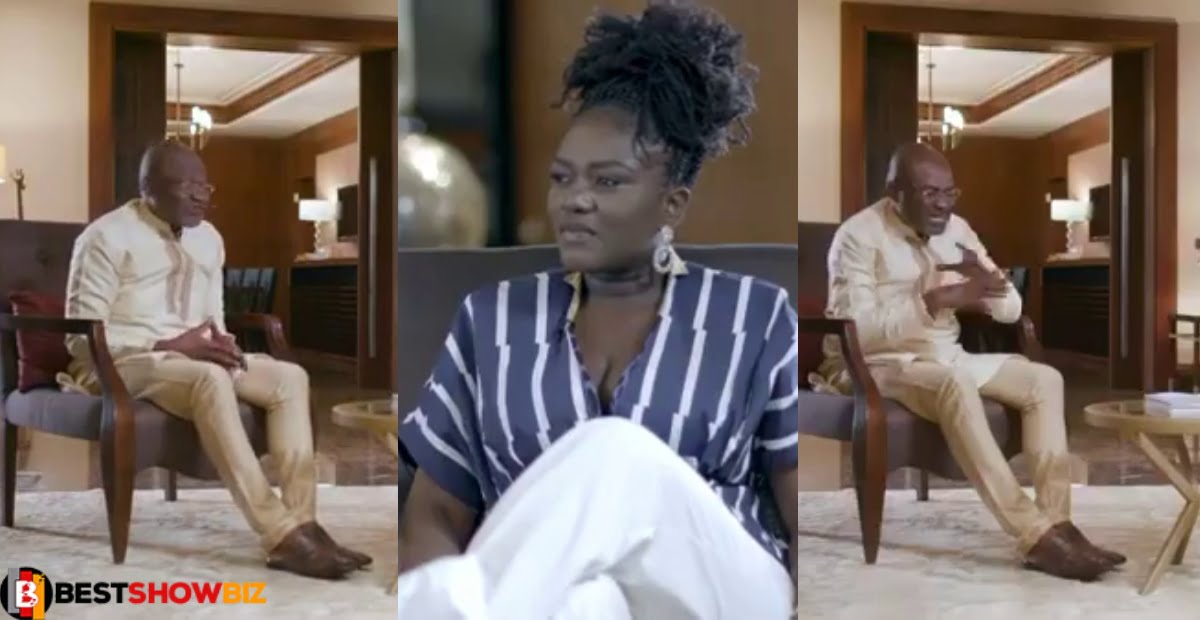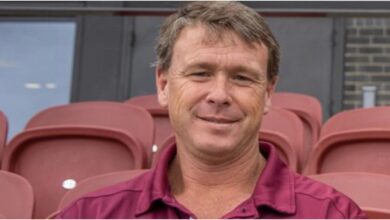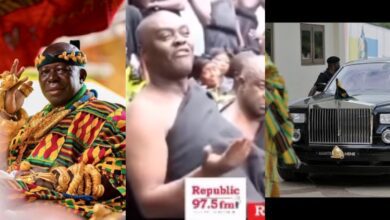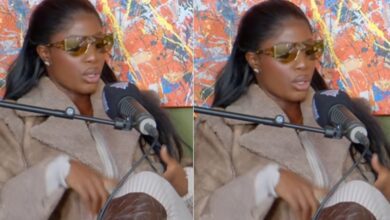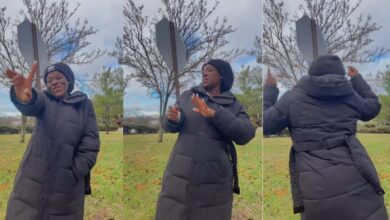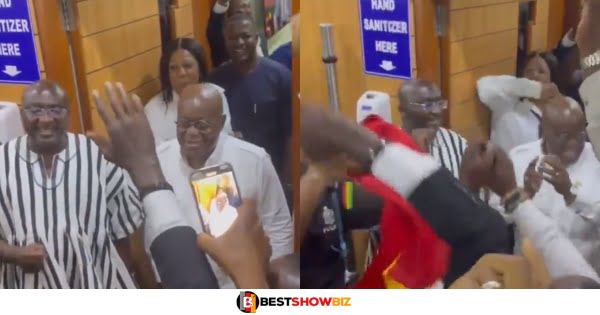Anas confessed to ‘being bribed’ with $100k while ex-CID boss got $75k & prosecutor $5k to shield Baba Tunde – Judge reveals
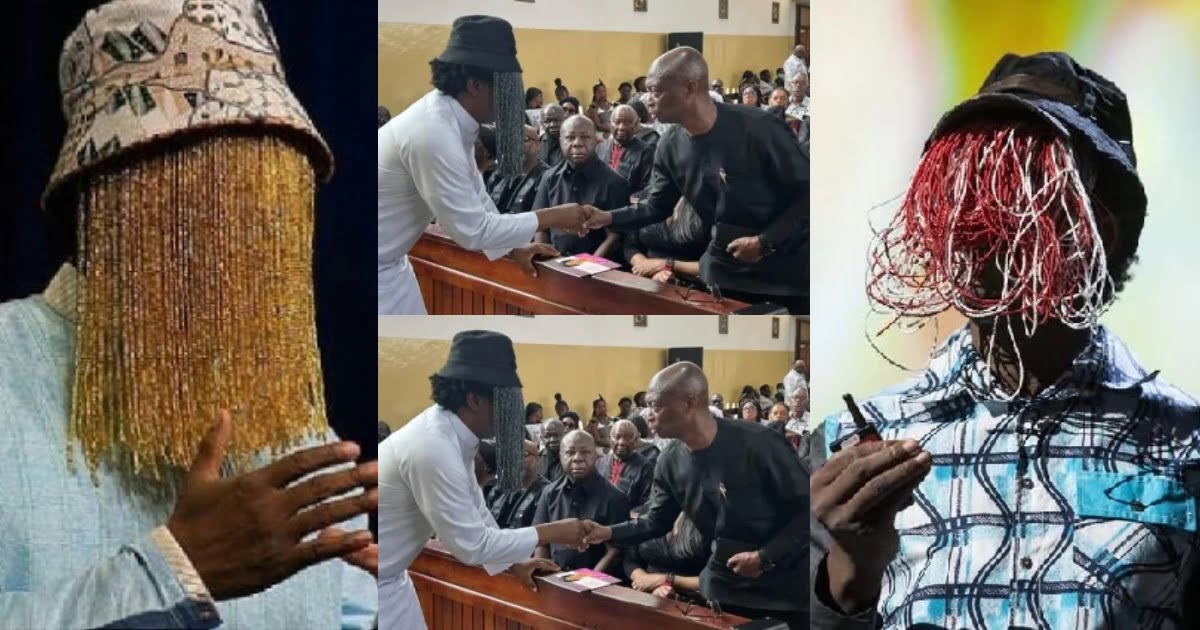
Justice Eric Baah, a Court of Appeal judge who recently dismissed investigative journalist Anas Aremeyaw Anas’ GHS25-million defamation suit against Assin Central MP Kennedy Agyapong, revealed in his lengthy judgment on Wednesday, 15 March 2023, that the Tiger Eye P.I. CEO, who, in his view, practices “investigative terrorism” and not “investigative journalism”, confessed on tape to being bribed with $100,000 by one Baba Tunde, one of the suspects in the $1.9-million gold scandal.
Moreover, Judge Baah said in his decision that one of the documents presented in court recorded Anas on tape admitting to paying a bribe of $75,000 to a former Director-General of the Criminal Investigations Department of the Ghana Police Service, Mr. Adu Poku.
According to the judgment, the journalist, who was the plaintiff in the defamation case in which he sought damages against Mr. Agyapong for calling him names like “blackmailer, corrupt, extortionist, criminal, evil, and murderer” in the ‘Who Watches The Watchman’ documentary aired in 2018 on Net2 TV, a media house owned by the politician, to ostensibly expose the alleged shady deals of the Tiger Eye P.I. CEO
Eric Baah’s decision in the gold fraud scandal, for which he concluded Mr. Agyapong was correct in labeling Mr. Aremeyaw a “blackmailer, extortionist, criminal, and corrupt”:
Exhibit KOA1 starts with one Hafiz Abdallah, who appeared on Net 2 TV on May 31, 2018, alleging that the plaintiff accepted a $50,000 (fifty thousand dollars) payment to halt an inquiry into a gold scam by the aforementioned Hafiz and others.
According to Hafiz, the failure to broadcast the footage in that instance was due to the bribe collected by the plaintiff.
The next segment of the video features a chat between the plaintiff on one side and Baba Tunde and Mubarak on the other.
The topic was a gold swindle involving 1.9 million dollars, with Baba Tunde, Mubarak and Hafiz Abdallah, and others as suspects.
According to Mubarak, they were paid a total of $560,000 out of a total of $1.9 million.
He said that this cash was split with Hafiz, as well as “people at the airport and all other folks.”
Mubarak made it known in the plaintiff’s presence that they were members of an international criminal gang.
“The man who brought the company was from Cotonou,” Mubarak said. He goes by the name Abbas, but his business name in Cotonou is Kwame. It is the business name he goes by. He is not present.”
He informed the plaintiff that one of the suspects, “Prince is not here, he is in Cotonou,” was not present.
Mubarak admitted his participation in the crime, saying, “We don’t conceal anything. Honestly, I’m not sure whether it was 1.9. Yet I know I’m a part of the entire thing.”
He then went on to say how much was received and how much each suspect and their accomplices received.
The plaintiff and the two suspects then had a lengthy conversation in which they plotted how they would fabricate a story to scapegoat one Hafiz, who had refused to cooperate with the plaintiff by giving him money, and how they would tell the police their sweet story while also securing the proceeds of the crime in their bank accounts.
After this conversation, the plaintiff met with the prosecution in the gold fraud case in what his counsel described as a trial rehearsal.
Indeed, the evidence plaintiff had obtained about the suspects dominated the early stages of their inquiry.
He gave the prosecutor the footage of his contact with the defendants and attempted to explain the facts.
The topic shifted from the suspects to money and the plaintiff and prosecution.
The complainant admitted to the prosecutor that he was purchased for $100,000.00. This is how the discussion went: ‘Prosecutor: Yeah, they’ve been trying hard to settle everyone. Anas:…his demeanor, where did the 1.9 million bucks come from? Where did they get it? Then he began telling me about the folks who had come here and were working with them. So, at the time, they paid a hundred thousand dollars for me since he is linked to me in some way. Somehow. I’m not sure how…’
The prosecutor was interested in learning who provided the money to the plaintiff, how much she was to get, and how the evidence was to be distorted in order to scapegoat (Hafiz).
The two then had the following conversation: ‘ Prosecutor: Is that both of them? No, that was Baba Tunde, Anas. He was now determined to fight for himself. Prosecutor: Please inform me of the sum sent to me. Anas: $5,000 (five thousand dollars) (five thousand dollars) Prosecutor: We all want and need money… Anas: That’s right. Prosecutor: That’s the reason why I had to know the evidence he had and then we convert it to fit the presentation you had in court’.
Here is what the video says about the plaintiff’s voluntary confession that he paid a bribe to the Director General of the CID: ‘Anas: They’ve… Adu Poku was the CID chief at the time. So I went to see him and handed him $75,000’.
Plaintiff’s assertion that the occurrence in the prosecutor’s office in the second section of the film was a rehearsal turned out to be mostly incorrect.
The gathering began as a rehearsal but quickly devolved into subjects unrelated to the rehearsal.
It immediately devolved into a section on how to divide bribes and damage the forthcoming criminal investigation on the gold swindle.
Otherwise, how was the rehearsal linked to the plaintiff’s confession that Baba Tunde had purchased him for $100,000.00, an allegation that was substantiated by the removal of Baba Tunde from the accusations despite the plaintiff’s possession of his tape-recorded confession?
How closely linked was the rehearsal to the plaintiff’s admission that he met with the then-Director General of CID, Ghana Police Service, and bribed him with $75,000.00?
And how relevant was the rehearsal to the plaintiff’s admission that he had placed a $5,000.00 bribe into the prosecutor’s account?
Plaintiff ducked behind the unstable and permeable flag of the rehearsal to avoid the important concerns highlighted by his confession comments in exhibit KOA1.
Despite the fact that the prosecution attempted to offer a recording of the plaintiff on the accused people, there is no proof of the actual copy that was to be tendered.
It might have been the identical copy as in exhibit KOA1, or a modified and doctored version.
According to the plaintiff, he rested after the judge denied the prosecution’s request to introduce the recording.
The recording was subsequently put on hold and was finally brought to the public’s notice when the defendant broadcast his “Who Watches the Watchman?”
Ghanaians and the rest of the world would have never known about the video and its perpetrators if it hadn’t been for the efforts of the piece’s investigators and the defendant.
The plaintiff’s chant in our ears, which I take judicial note of, is “Name, shame, and prosecute.”
As a result, the plaintiff has raced to make audio-visuals about his investigations available to the public, frequently for a price (judicial notice).
The judicial note is also made of the fact that in some of the publicized investigations, the bribes received include thousands of cedis and/or goats, yam, and so on. Refer to the research on judges titled “Ghana in God’s sight, the epic of injustice,” which was highlighted by the plaintiff’s attorney.
The sum taken in the case at hand was $1.9 million, making it most likely the largest crime by quantum probed by the plaintiff.
As previously stated, the perpetrators admitted to their participation in the crime on camera and in front of the plaintiff.
The suspects claimed to be part of an international criminal group that operates between Ghana and Cotonou.
A videotape showing the defendants’ self-confession in a gold fraud involving $1.9 million and a cross-border gang with collaborators at the airport and elsewhere would have been dynamite on the airways.
The plaintiff and his team, however, kept the airways silent.
In this instance, the plaintiff, as is his custom, failed to identify and disgrace the offenders by publicly displaying explosive footage.
He deferred to the court first, rather than last, which was unusual for him. Even after the court rejected the recording and the case was shortened due to a lack of prosecution, the plaintiff kept the video hidden.
His stillness persisted.
He remained silent from 2009 till 2018, when the audio was first made public by the defendant.
It was not due to a change of heart or policy, since the plaintiff has continued to reveal videos of his own investigations.
What prevented the plaintiff from making the tape public?
The solution may be found on the tape.
On the audio, Hafiz deciphered why the plaintiff refused to broadcast the video, as he had done in previous investigations.
“So, why didn’t you reveal the videos?” Hafiz asked of the plaintiff’s behavior. You showed the customs officials and the judges, but when it came to our turn, he didn’t reveal it since he pocketed the 50,000 (fifty thousand dollars). Do you see where I’m coming from? What I’m trying to tell Ghanaians is that this person is incorrect. He is not a proper human being because when he arrives to accomplish this, he goes to edit what he wants to add and subtract what he wants—just like any movie producer. That’s precisely what he’s doing. He is the producer of the film.”
When seen in light of the other events in the case, Hafiz’s allegation gains considerable credibility.
Plaintiff seemed to strategize with Mubarak and Baba Tunde on how to hide them and the other perpetrators while shifting the responsibility to Hafiz on the recording.
The scheme proceeded when the plaintiff saw the prosecutor in her office.
To that aim, the prosecutor explained to the plaintiff, “That’s why I needed to know what evidence he had, and we turned it in to meet the presentation you had to make in court.”
To “flip” evidence to fit the plaintiff’s story in court was to bend the evidence, which was against the law and against prosecutorial ethics.
As a prosecutor, you do not twist or bend the evidence to fit your case. You portray it as it is, even if it might help the accused.
The ethics of prosecution thus requires that if a prosecutor possesses evidence that may benefit or exonerate the accused but that the accused does not have, the prosecutor must provide such material on to the accused.
The section of the dialogue that was up-quoted indicated only one thing: there was a scheme between the plaintiff and the prosecution to destroy the trial.
The case started with Mohamed Hafiz Abdallah in the court proceedings (exhibits KOA2/F-series). Then an unidentified individual was added. Subsequently, three people appeared as accused: Mohammed Hafix Abdallah, Mubarak Seidu, and Prince Kingston Kwame.
Baba Tunde, who the plaintiff had caught on video admitting to the crime, was conspicuously absent.
Why was Baba Tunde omitted? If he was excluded by the prosecution without the plaintiff’s knowledge, did the plaintiff seek the Attorney General for his inclusion, given that his confession was recorded?
The evidence before me adequately demonstrates that Baba Tunde was omitted from the accusations via the plaintiff’s manipulations, after accepting a $100,000.00 bribe from Baba Tunde, and on the basis of their familial ties.
I’ll recite the essential part of the exchange between the plaintiff and the prosecution on Baba Tunde for emphasis: ‘Prosecutor: Well, they’ve been working hard and are settling everyone. “…his demeanor, 1.9 million bucks from where?” Anas says. Where did they get it? Then he began telling me about the folks who had come here and were working with them. So, at the time, they paid a hundred thousand dollars for me since he is linked to me in some way. Somehow. I’m not sure how…? Prosecutor: Is it both? Anas: Not at all, Baba Tunde. He wants to fight for himself now’.
Who can deny that Baba Tunde paid him with $100,000.00 in order for him to fight for himself?
According to the plan, Baba Tunde, who confessed to a $1.9 million crime on a video in plaintiff’s possession, was exonerated.
His confession video was never disclosed to the public.
Bribery and corruption of public officials are criminal offenses under sections 239 (1) and (2) of the Criminal Offences Act of 1960. (Act 29). Section 239 (1) and (2) provides: “(1) Any public officer or juror who commits corruption, or intentional oppression, or extortion, in respect of the duties of his office, shall be guilty of a misdemeanour. (2) Anybody who corrupts a public official or a juror in the performance of their responsibilities is guilty of a misdemeanor.”
Sections 240 and 241 of Act 29 explain corruption by and of a public officer, juror, or voter as follows: “Section 240. A public officer, juror, or voter is guilty of corruption in respect of the duties of his office or vote if he directly or indirectly agrees or offers to permit his conduct as such officer, juror, or voter to be influenced by the gift, promise, or prospect of any valuable consideration to be received by him, or by any other person, from any person
241 Section
A person is guilty of corrupting a public officer, juror, or voter in the performance of his duties or the casting of his vote if he attempts, directly or indirectly, to influence the conduct of such public officer, juror, or voter in the performance of his duties or the casting of his vote through the gift, promise, or prospect of any valuable consideration to be received by such public officer, juror, or voter, or by any other person, from whomsoever.
In the aforementioned criminal proceedings, a voluntary confession statement is admissible against the creator.
The confession statements absolved the defendant of the burden of evidence to the level of “beyond a reasonable doubt,” which is the threshold for establishing a criminal charge in a civil trial.
The defendant established beyond a reasonable doubt the criminal charges against the plaintiff based on exhibit KOA1.
Plaintiff’s counsel attempted to prove the charge using theoretical arguments and logical conclusions.

[ads2]

